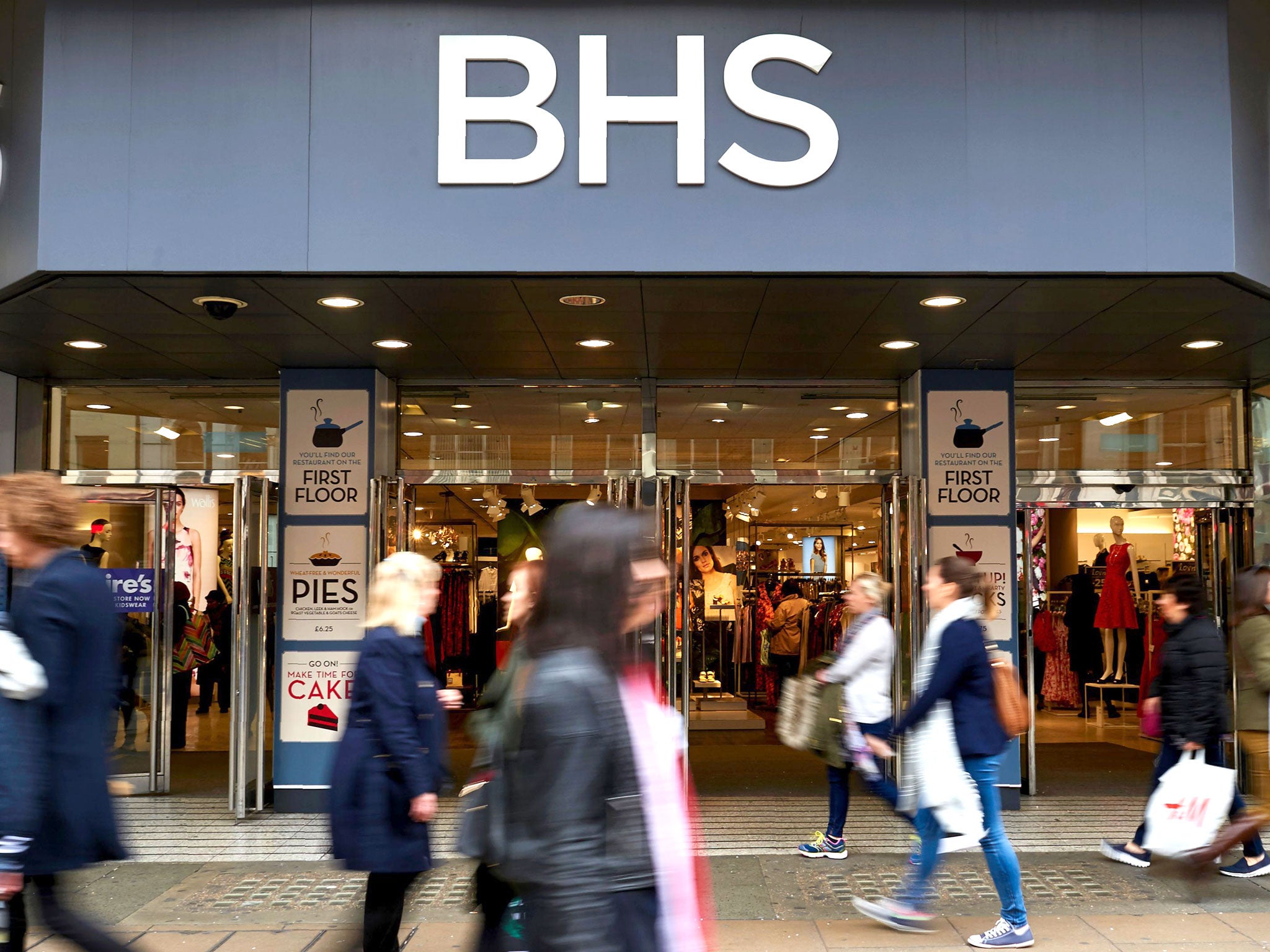The BHS fiasco is a sign British brands are on the decline
Supermalls have slaughtered the high street - British retailers should be very worried


I’m not wearing my black armband for BHS, although I feel extremely sorry for the 20,000 members of the pension scheme, many of whom will also be jobless. BHS was a store that didn’t have any definable identity, and in spite of Sir Philip Green’s much commented-on ‘flamboyant’ personality he didn’t manage to translate it into sales.
The only time I visited BHS was to use the ground floor as a short-cut from Topshop to John Lewis in Oxford Street, but their lighting department had many fans. The workers in BHS are not to blame for the store hitting the buffers, after years of being treated as a cash cow by a series of cynical owners.
In a nutshell, we’ve fallen out of love with shopping, with food and clothing taking the biggest hit. Latest figures show that retail sales in the UK fell this month at the fastest rate for four years. The cold weather has meant we’re not interested in buying summer clothes, and there’s a general feeling (summed up brilliantly by the boss of IKEA and echoed by leading industrial designer Tom Dixon in the Financial Times) that we’ve reached ‘peak stuff’. In other words, years of rampant consumerism coupled with cheap clothing has resulted in a powerful backlash and we’re buying less. How many coats, shoes, sweaters or kitchen gadgets do we really need? How many new sofas, rugs or trendy lamps? More importantly, how will they fit into our tiny homes that are full of young people who can’t afford to leave and buy a place of their own?

If Marks and Spencer aren’t careful, they could end up as a niche food store, because their clothing sales remain stagnant no matter what trendy stick insect Alexa Chung may choose from their archive as the next ‘Big Thing’. A split leather skirt or a frilly blouse won’t turn around this big liner, whereas ready-sliced avocado in a pot or a ‘superfood salad’ are still seen as highly desirable by middle-class foodies.
Only 20 per cent of retailers surveyed by the CBI have seen sales rise over the last year, while a third saw sales fall. In the last week, both BHS and Austin Reed have gone into administration, and Argos reported a sales drop of 28 per cent. When Woolworths closed in 2008, nearly one in five of their premises were turned into discount and factory outlets - Poundstretcher, Poundland and 99p stores, for example. The 164 BHS stores will inevitably go the same way - reopening as cheap homeware stores and discount grocery chains. Discounters have turned the traditional high street into a death zone, hardly a destination for an enjoyable few hours browsing and a nice lunch.
Without curbs on betting shops and limits on the number of charity shops, most of our major shopping streets are wall-to-wall tat, with tacky shop fittings and ugly signage. These days we spend hours purchasing online, fuelling a big rise in the number of vans on the road and a decline in average traffic speeds in towns. Last week, one company even unveiled a remote controlled high-tech robot to deliver shopping to our front doors, starting in London this summer.
Last Sunday, I walked through the giant Westfield shopping mall in East London - this is what’s slaughtered the high street. In a temperature-controlled environment, families have a day out, eating and drinking, taking selfies and even buying the odd item. Shopping is not the main reason for their trip - the mall has replaced the high street as a destination, a modern soul-less theme park, full of chains and totally lacking any quirkiness or sense of place. There’s zero individuality, just a chance to worship at the shrine of superbrands. Shopping online, you can enter your private dream world, perusing luxury goods you can never afford - consumer porn for the 21st century in the comfort of your own home.
Shopping has become an unappealing way of spending your time. The people visiting Westfield and the other supermalls are not interested in history or tradition - they probably go to Disneyland for their holidays and rarely visit a National Trust property - I’m not being snobbish, but they couldn’t give a stuff about the high street, or any of the so-called 'Great British Brands'. Marks and Spencer should be very worried.
Join our commenting forum
Join thought-provoking conversations, follow other Independent readers and see their replies
Comments
Bookmark popover
Removed from bookmarks